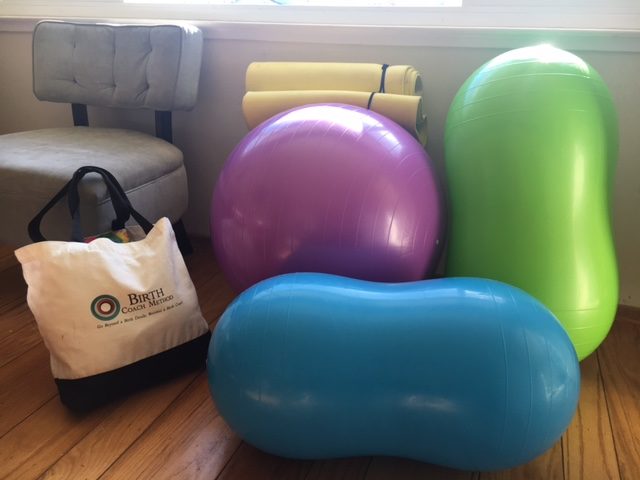Description
The training that transforms you so that you emerge as an impactful and thriving doula
And the best part is that the Birth Coach Method’s coaching approach is woven into each and every lesson! Our transformational online doula training program consists of the following:
- 15 audiovisual lessons – about 40 hours of theoretical and practical knowledge combined with our special coaching approach.
- 6 Live Zoom sessions are provided twice a year- in the Spring and Fall every year, coming together to 18 contact hours.
- Access to the audio-visual guide Practicing for an Active Birth presents great labor support coping tools with which you will practice as a doula.
- Bi-weekly 60-min virtual group mentoring infinitely.
- Valuable handouts to integrate instantly into your practice
- Supervision process in your area: Once you are ready to support your first no-cost clients as a doula-in-training, we will guide you to find a seasoned doula who will be your local mentor. We will provide the mentorship instructions. Additionally, we recommend that our far-away students attend a local childbirth education class in your area.
Many aspiring doulas worldwide are interested in our unique doula training program for the inherent coaching approach that is woven into each and every lesson of the training.
Learn the basics of our transformational birth support coaching approach!
- Get birth clients and make them appreciate the value of working with a doula, regardless of their choices around taking pain medications or the type of birth they commit to.
- Inspire expectant individuals to demand patient-centered care that integrates their beliefs, values, and wishes in the treatment plan.
- Lead birth givers to hold strong convictions that will serve them in moments of potential deviation from their desired birth experience.
- Increase birth givers’ accountability for their process toward a healthy birth.
- Inspire birth givers to adopt better perspectives on childbirth, labor pain, the role of medical caregivers or procedures, and other topics relating to their process.
- Facilitate clarity about birth givers’ desired birth experience
- Increase birth givers’ confidence in themselves, their bodies, and the healthy process.
- Facilitate higher levels of satisfaction
You will learn how to do all that in our Online Doula Training program because we don’t believe any doula training program is complete without it!
Join a bi-weekly Zoom meeting with BCM Doula Trainers- Neri Life Choma and Stephanie Sheldon-Molliner! It’s a wonderful opportunity to ask questions and build your professional community.
Meet Your Instructors
Neri Life Choma, MA
CD, CBE, CHT, Transformational Coach, NLP Practitioner, and founder of the Birth Coach Method.
Neri is a seasoned birth doula and childbirth educator who brings rich experience and a wealth of knowledge to the training. Additionally, she holds a master’s degree in cognitive science and was trained as a hypnotherapist, a transformational life coach, and an NLP practitioner. Neri is the author of The Art of Coaching for Childbirth and the creator of the audio-visual guide Practicing for an Active birth.
Certification Requirements:
You have 1-year from registration to complete your certification requirements
- Complete the online study of the 15 online classes.
- Fill in the study guide attached to each lesson.
- Scan the completed study guides and share them with your trainer.
- Attend 2 births as a doula in training while receiving guidance and supervision from your trainer.
- Submit 2 birth reports according to the guidelines we will share with you.
- Pass the final exam.
- Pay your $60 membership fee and receive the certification badge to be uploaded on your website.
Upon registration, we will email you a link to create your username and password on our online system. Please allow us 24 hours to approve you as a user, and begin your learning experience. We grant you six months’ access to complete your study, with an additional one no-cost retention of 60 days. Beyond this extension, students can buy monthly access for $50 a month. We require our students to complete their certification process within a year of registration.
**Enrolling in the program using a payment plan of any type is a full commitment to submit all future payments. You will not be able to stop making the payments before you complete the full tuition.
Program Outline
Introduction: Fear, Pain, and the Medicalization of Birth
This lesson is a historical review of the rise of Obstetrics Gynecology and the medicalization of birth. It is common knowledge that women used to give birth at home, surrounded by other women in their community and being cared for by the town midwife. We can find references to this in the bible, movies, novels, and poems. Most of your clients do not know why and how we ended up giving birth in hospitals. Moreover, the spreading myth is that maternal care is safer than the midwifery model when in reality, there were other modern developments like blood transfusion, family planning, antibiotics, hygiene, and sanitary conditions that made childbirth safer in the modern era.
This lesson will inspire and strengthen you as a woman and birth coach. It will provide you with the information you need to conduct a knowledgeable discussion with your clients when they doubt themselves and rely on the information given to them by a medical authority.
Lesson 1: Physiology and Anatomy of Birth
Do you know what triggers birth to begin? What is the chain of commands in our brain or our hormonal system, and how does this chain of commands lead to birth and to birth progress? As a birth coach, not only do you want to understand the physiology of birth, but you also want to be able to explain it to your clients. Many moms are more likely to learn and practice labor support tools when they understand how these are related to the physiology of birth and can support their birth progress. Understanding our emotional and physiological reaction to fear and pain, known as the Fear-Tension-Pain reaction, will assist you in coaching your clients to break through the FTP syndrome that leads to FTP of another kind- Failure to Progress. When teaching birth anatomy, we always translate the theoretical knowledge into a practical one you can integrate in your work with future clients.
Lesson 2: Prenatal Care and the Most Common Complications in Pregnancy and Birth
At Birth Coach Method, we focus on prenatal coaching. We believe that you should use this time to build rapport, deepen your relationship, create intimacy with your clients, and earn your leadership position by coaching them for a while. We know that coaching comes before the performance and continues throughout the experience of childbirth to increase satisfaction and allow the best possible outcomes. This means that you need a body of knowledge about types of caregivers, medical tests and procedures, and common complications that might appear for your clients prenatally and during birth. This lesson is designed to give you a deeper understanding of these and to hand you the best coaching tools to coach your client around this topic.
Lesson 3: Stages and Phases of Labor
We encourage you to think about birth as a process and to be patient while allowing the body to do what it needs to do in its own pace. We also want you to know that birth has distinct stages and phases that differ from one another in their physiological and emotional symptoms, length, and labor progression. During these stages, the birthing mother feels and behaves differently and needs different types of coaching tools and comfort measures. As birth coaches, we hold a holistic philosophy and make no medical interventions, like vaginal exams. Therefore, birth coaches analyze the progress of birth by relying on the symptoms of these different phases in accordance with the time frame. This lesson is a must if you want to be able to analyze your client’s birth, use your tools appropriately, and, together with your client, make good decisions during birth.
Lesson 4: Leading and Supporting through the Early Phase of Labor
This lesson is the first in four practical lessons introducing the hands-on labor support tools and comfort measures to be used by birth coaches during birth. These are very practical lessons, and we made sure to accompany each one of these with images and videos to enhance your understanding and allow you to practice. These labor support tools and comfort measures are the core of the birth coach practice; therefore, we encourage you to practice them until you own them and are ready to lead your client confidently during birth.
The early phase is the longest and most usually spent with your client at home. We invested many hours in ensuring we teach you everything you need to maintain supportive communication before your arrival at your client’s home and continue coaching her with confidence until it is time to bring her to the hospital. (Assuming she chose a hospital birth).
Lesson 5: Leading and Supporting through the Active Phase of Labor
This lesson is the second in our Hands-on Series, in which each lesson, from lessons 4 to 7, is dedicated to a different phase. The goal of lesson five is to help you become an expert on the physiological and emotional symptoms of the active phase of labor. This mastery will allow you to choose the right labor support tools and coaching techniques for this phase. By taking this class, you will be able to help your client cope with the stronger contractions that are part of this phase, help her overcome moments of crisis, and, most importantly – facilitate her labor progress.
Lesson 6: Leading and Supporting through the Transition Phase of Labor
As the name suggests, the goal of this lesson is to teach you how to coach, lead and support your client in the most intense phase of labor – Transition. In this phase, your client is most likely to give up on her ideal birth experience, ask for an epidural or just stop being accountable for her birth and take decisions or actions that are clearly deviating from her wishes or are against her belief system. This is the phase where mothers most need your leadership skills. To take the lead, you must think and act fast, as this is the most rapid phase in birth. We made sure to introduce the physiological and emotional symptoms of transition, hand you tools to overcome moments of crisis and enrich you with labor support tools that you can practice as many times as you want with the video segment introducing the hands-on techniques for the transition phase.
Lesson 7: Leading and Supporting through the Second Stage of Birth Pushing and the Birth of the Placenta
This is the last lesson in our hands-on series, and it is dedicated to the second stage of birth- the delivery of the baby and the placenta. This phase probably gave labor its name- this is hard work for both the mother and her baby. By coaching the mother during this phase, you can make a huge difference; facilitating a change of positions can invite progress and make this phase a lot shorter, and by being mindful and accountable about the mom’s perineum, you can help the mother give birth with an intact perineum. You can inspire the whole medical team by creating a warm, quiet, and tranquil atmosphere to welcome the baby into the world.
Lessons 8 & 9: Common Medical Interventions in Labor and Delivery
We wish we could skip this and teach you how to support birthing moms and their partners and lead them all the way to healthy and active births. But in reality, birth management is routine care these days in Labor and Delivery. Unfortunately, the medical model of care is accepted by most birthing mothers, who believe it is lowering maternal and fetal mortality rates. We dedicated lesson 10 to the historical process of the medicalization of childbirth, but before that, lessons 8 & 9 are dedicated to introducing and understanding the most common medical interventions that might appear during your clients’ births. We provide you with the information and coaching tools you will work with when the situation calls for medical interventions. We want to reassure you that we strongly advise against advocacy or having a tug of war in labor and delivery between you and the medical team, and therefore we make sure to focus on the respectful and professional way of coaching around medical interventions.
Lesson 10: Relationships in Labor and Delivery
As a birth coach, you are in the business of group coaching; a couple is already a group, and you are working with couples. In the birth arena, there are more agents, like family members, best friends, medical caregivers, and the medical staff. Your birth clients will sometimes find themselves between a rock and a hard place, trying to navigate between their beliefs, wishes, and needs and the other agents, and it is your role to coach them and resolve these situations. Most often, these conflicts will show up around medical interventions or the philosophy of care that the caregivers hold. Having a tug of war at birth, or even during the prenatal period, is no service to your clients, as the mother can’t feel safe giving birth in this atmosphere.
Transformational coaches will tell you that it is all about relationships- with food, money, profession, and people around you. We dedicate lesson eleven to providing you with coaching tools around relationships, and we believe that practicing these tools will enable you to create teamwork with everyone involved at the birth for the benefit of your birth clients.
Lesson 11: The Baby During Birth and in the Postnatal Period
The baby goes through major changes during birth and during the first few days of life. Understanding this in-depth will help you support the parents when their concerns or goals revolve around their baby. With this knowledge, you can be a resource and coach your clients around decisions that affect their newborns. In addition, you will know how to explain moments of emergency that might show up with the arrival of the baby in labor and delivery. The first few days after birth, when the baby is home, could be an overwhelming experience for the parents. Even when they have family support, they might still tend to rely more on their birth coach as a resource of information.
Lesson 12: Physiological and Emotional Changes in Postpartum
Your relationships with your birth client do not end right after birth. There is an obligatory postpartum visit you pay your client at her home, preferably as soon after the birth, and sometimes even more than one. This visit aims to get closure around the birth experience, answer questions regarding the birth, or resolve emerging issues relating to breastfeeding or baby care. You also need to know how to assess your client’s well-being, and by this, we mean the level of support she has for her physiological and emotional healing.
In this lesson, we went far beyond providing you with the basic knowledge of postpartum changes and concerns to include coaching tools around unexpected outcomes like the loss of a child or the loss of the dream of a healthy and perfect child.
Lesson 13: Breastfeeding Basics
This lesson is an introduction to breastfeeding. As a birth coach, you will sometimes be called to coach your clients about whether or not to nurse their babies. If your client chooses to nurse, you have the honor of supporting her at the very first experience of nursing her baby as soon as the delivery. The research shows that a successful beginning of breastfeeding predicts a long and satisfying nursing experience for both mother and baby. When difficulties emerge around breastfeeding, there is a great chance that you will be the one to give first aid before the mother contacts a breastfeeding specialist. For all these reasons and more, we thought you wanted to be knowledgeable about breastfeeding.
Lesson 14: Establishing Your Birth Coach Practice
Congratulations! You are done with your training program, and it is time to establish your practice. We found that just as much as our students are excited and passionate about birth, they are intimidated by the idea of going into business. In this lesson, we coach you to become a successful birth support practitioner. Here you will find information about networking, elevator pitches, how to find clients and turn them into referees, your basic package of marketing tools, a relationship with a backup coach, liability insurance, insurance claim codes, and more.












